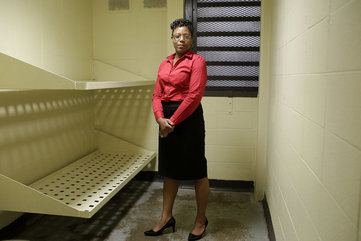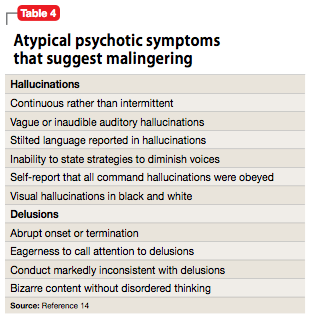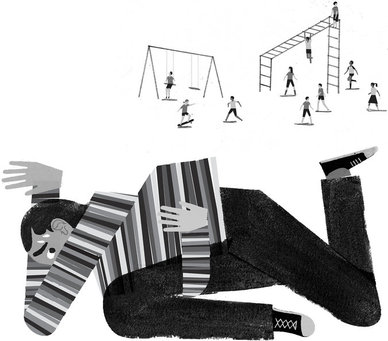
 In Chicago, Illinois, the Cooks County Jail has been undergoing an overhaul in an effort to improve conditions at the jail, as well as improve the overall well-being of the inmates. To lead these changes, the jail took a unique approach and selected a clinical psychologist to act as warden, something no other correctional institution has done before, but could perhaps be the way of the future ... Dr. Jones Tapia, knows all too well how prevalent mental illness is among those incarcerated and how frequently it goes ignored in jails and prisons, often leading to increased maltreatment and increased difficulties and multiple re-incarcerations when individuals are later released. With her background in mental health, Dr. Jones Tapia is hoping to change this current culture and has already been working to implement changes to better address mental well-being. "The program she is most proud of — and the centerpiece of efforts to overhaul the jail — is the mental health transition center... Five days a week, a group of about 15 inmates with mental illnesses like depression, bipolardisorder and schizophrenia, receive cognitive behavioral therapy, job readiness skills and extra recreation. The warden said such inmates who were released without such services were often back within weeks as they amassed dozens, even hundreds, of arrests for petty crimes like shoplifting and drug possession because they were unable to obtain the prescription drugs needed to treat their condition. Many are rearrested just to receive treatment, so upon their release, inmates are now given a two weeks’ supply of medication. “If somebody doesn’t have access to the basic tools to survive, they’re more likely to recommit a crime and come back,” Dr. Jones Tapia said. “So we know it’s not just a mental health problem. It’s more of a well-being problem.”" You can read more about the health services offered at Cooks County and the other changes in the works by checking out the article here: http://www.nytimes.com/2015/07/31/us/a-psychologist-as-warden-jail-and-mental-illness-intersect-in-chicago.html?_r=1  Just as the general population is aging rapidly, so too is the population behind bars. The California Men's Colony, a minimum and medium security prison in California, started a pilot program in 2012 to train those who are incarcerated to become dementia aids in order to help provide 24/7 care for fellow inmates who have developed dementia while in prison. Dementia aids attend to all of an inmate's personal care and emotional needs while fostering the development of a new-found sense of purpose, empathy, and trust. To learn more about this program check out this video published by the New York Times: http://www.nytimes.com/video/health/100000001367225/dementia-behind-bars.html  Put your knowledge and skills to the test with a case of a 32 year old man, who pleads not guilty to rape charges by reason of insanity. The patient is assessed by a forensic psychiatrist and reports that since suffering a head injury a number of years ago, he has experienced personality changes, psychosis, and violent behaviour. The patient argues that his actions were beyond his control, and that due to his brain injury he suffered from hallucinations and aggressive behaviour. Is this a case of malingering? "Did brain trauma lead to crime?" by Helen M. Farrell and Henry A. Nasrallah (Current Psychiatry) In follow-up to yesterday's post about a physician being attacked during a psychiatric assessment, Dr. Sandy Simpson, chief of forensic psychiatry at the CAMH - Centre for Addiction and Mental Health helps us to better understand mental illness and violence, in this brief but informative blog post.
|
Description
Supporting and enhancing students' and health professionals' knowledge and understanding of mental health and psychiatry
Archives
June 2017
Categories
All
|






 RSS Feed
RSS Feed
